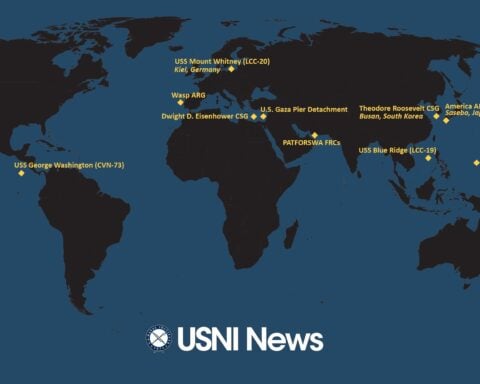The following is the June 25, 2024, Congressional Research Service In Focus report, South Korea: Background and U.S. Relations.
From the report
Overview
South Korea (officially the Republic of Korea, or ROK) is one of the United States’ most important strategic and economic partners in Asia. The U.S.-ROK Mutual Defense Treaty, signed in 1953 at the end of the Korean War, commits the United States to help South Korea defend itself, particularly from North Korea (officially the Democratic People’s Republic of Korea, or DPRK). Approximately 28,500 U.S. troops are based in the ROK. The economic relationship is bolstered by the U.S.-South Korea Free Trade Agreement (KORUS FTA), implemented in 2012. In 2022, South Korea was the United States’ seventh-largest trading partner (goods and services trade combined), and the United States was South Korea’s second-largest trading partner, behind the People’s Republic of China (PRC, or China). Over the past decade, congressional interest in U.S.-ROK relations often has focused on U.S.-ROK cooperation on North Korea, Indo-Pacific policies, the U.S.-ROK alliance, and U.S.-South Korea trade and investment flows.
South Korean President Yoon Suk-yeol, in office since May 2022, is seeking to transform South Korea into a “global pivotal state” by raising its profile beyond the Korean Peninsula and becoming a more active U.S. partner in the Indo-Pacific. U.S. President Joseph Biden and Yoon have forged closer cooperation on North Korea policy, including through bilateral and trilateral (with Japan) military exercises. They also have committed to strengthening economic security in line with U.S. efforts to promote technological development and supply chain resiliency.
The increased U.S.-ROK alignment was on display during April 2023, when Biden hosted Yoon for a State Visit and Yoon spoke to a Joint Meeting of Congress. To address increased South Korean concerns about the credibility of the U.S. commitment to ROK security, Biden and Yoon issued “the Washington Declaration” on extended deterrence. In the document, the United States agreed to expand consultations with South Korea on the use of U.S. nuclear weapons on the Korean Peninsula and to “enhance the regular visibility of strategic assets,” including nuclear-capable weapons systems deployed to the Peninsula. South Korea restated its commitment not to develop nuclear weapons. Since the late 2010s, as North Korea has advanced its nuclear and missile capabilities, opinion polls have shown the ROK public supports developing indigenous nuclear weapons. In August 2023, Biden hosted Yoon and Japanese Prime Minister Kishida Fumio at Camp David, the three countries’ first-ever standalone summit meeting. The leaders announced a set of unprecedented initiatives for trilateral consultation and collaboration.
North Korea Policy Coordination
Historically, North Korea has been the dominant strategic concern in the U.S.-ROK relationship. Whereas the previous ROK government emphasized diplomacy with North Korea, Yoon and Biden have emphasized deterrence. They have reactivated high-level consultations on extended deterrence under the U.S. nuclear umbrella and expanded the scope and scale of combined military exercises (including with Japan), which President Donald Trump and Yoon’s predecessor had curtailed. The United States has increased deployments of strategic assets—such as nuclear-armed submarines—to South Korea, introduced new unilateral sanctions designations on North Korea, and proposed new DPRK sanctions measures in the United Nations.
Download the document here.





